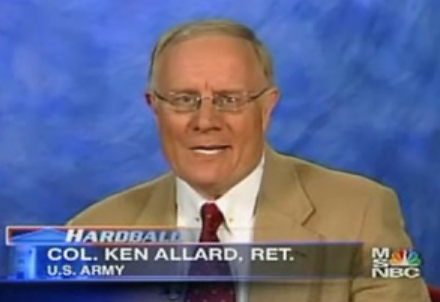Congress Orders Investigation into Pentagon Pundit Scandal
By a voice vote, the U.S. Congress passed an amendment last week to the Defense Authorization Act for FY2009, forbidding the U.S. Department of Defense to engage in "propaganda purposes within the United States not otherwise specifically authorized by law." Probably more important is that the amendment requires an investigation by the U.S. Government Accountability Office (GAO) to study and report back to Congress on "the extent to which the Department of Defense has violated the prohibition on propaganda" already established in previous laws passed by Congress. The amendment was prompted by an April 20 report in the New York Times exposing the Pentagon military analyst program through which the Pentagon lobbied for war by cultivating former military officers who became regulars on Fox News, CNN and the broadcast networks. As Diane Farsetta and Sheldon Rampton have argued previously, the Pentagon pundit program broke existing laws which forbid government officials from engaging in "publicity or propaganda purposes within the United States not heretofore authorized by the Congress."

 On the heels of last month's New York Times
On the heels of last month's New York Times  But the pundits weren't just selling government talking points. As
But the pundits weren't just selling government talking points. As  Author Glenn Greenwald notes, "It has now been more than ten days since the
Author Glenn Greenwald notes, "It has now been more than ten days since the